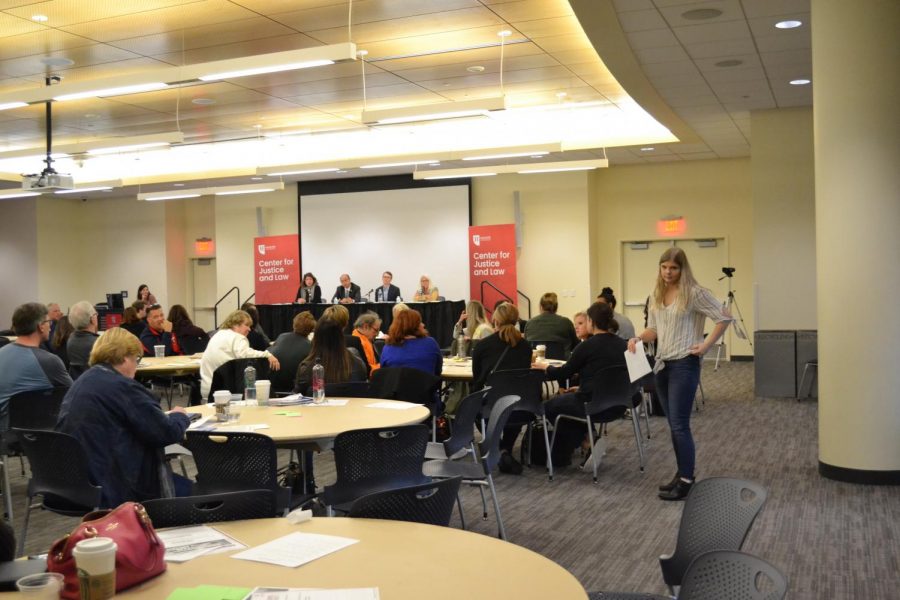Wrongfully convicted
Questions of criminal injustice arise in the Center for Justice and Law’s guest speaker series.
October 9, 2019

Stories of criminal injustice filled a packed lecture hall during an event that hit Hamline last Friday. The event was planned by Hamline’s own organization: The Center for Justice and Law.
Senior Amanda Jensen explained that “the Hamline Center for Justice and Law works to advance justice by developing creative, concrete and equitable solutions to legal issues and policy concerns through teaching, research and active collaboration with community partners and policymakers.”
Jensen is the CJL program coordinator. CJL is open to students of any major or interest.
On Oct. 3, CJL hosted an event that examined the role of race, culture and poverty in contributing to ‘wrongful convictions.’
The event included a panel of speakers, ranging from attorneys to generals to wrongfully convicted civilians.
“I think this is a really important conversation,” said John Choi, a Ramsey County Attorney. “Wrongful convictions reflect on us in many ways. When we think about wrongful convictions, we have to think about ourselves.”
And that is just what Koua Fong Lee, a victim of wrongful convictions, did.
“I came to America for a better life, but somehow [a wrongful conviction] happened to me,” Lee said.
Lee was wrongfully convicted for homicide after the brakes on his Toyota malfunctioned, causing him to crash his vehicle and kill three individuals in an accident. Eventually, Toyota recalled Lee’s car model, supposedly due to errors in production, which led to Lee’s early prison releasement. His original sentence was eight years.
Lee shared his experience of going through the American criminal justice system as a wrongful convict with the audience of the CJL event on Oct. 3.
“It was difficult to understand what was happening in the courtroom,” Lee said.
Lee originally lived in Thailand without experience speaking English. At the time of his trial, Lee’s lawyer stated the Miranda Rights and asked if Lee understood them. Lee told his lawyer he did not quite understand, yet Lee’s lawyer ignored him and continued carrying out procedures.
“This is an issue,” Kathleen Moccio, an immigration lawyer, said. “He went into custody and was not getting the rights that are clearly stated in the law.”
Moccio also argued that there is a need for attorneys who speak languages other than English.
“I got trialed for something I didn’t do,” Lee said. “To go to prison, to stay overnight, I’m thinking: ‘Who are these people and what did they do?’ I was scared. Very scared.”
Lee expressed how his fear turned to joy once he reunited with his wife and kids after his time in prison.
“Being called ‘Dad’ again was the best feeling I had felt in a while,” Lee said.
Currently, his oldest child is a PSEO student at Century College in White Bear Lake and will be attending the University of Minnesota next year.
“You came here for the American Dream but ended up living the American Nightmare,” an audience member proclaimed. “I am glad you are doing well now.”

